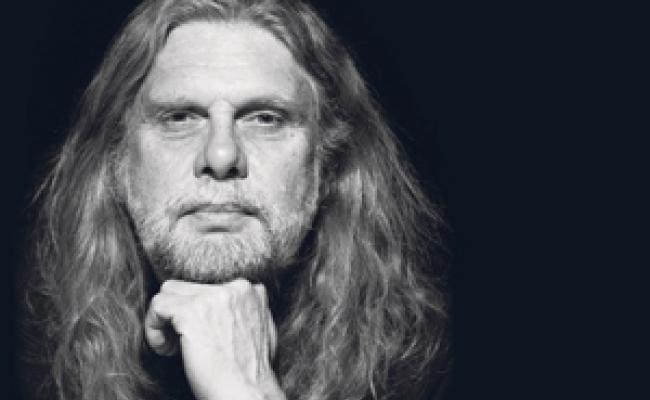Op-ed: Gender Equality is Back on the Arctic Agenda - This Time For Good?
(Photo: Philippe Fitte)
If there is one day in the year where women´s and gender issues receive attention across the media and in public discussions, it is International Women´s Day on March 8. This week gender equality has gained visibility as an explicit part of Norway´s Chairship of the Arctic Council (AC).
Even if you follow Arctic issues very closely and saw the last week´s good news about the resumption of virtual meetings of the AC Working Groups, you might have missed the release of a series of short conversations on the AC website this week.
You should not miss them, though – they are important.
In a series of 4 brief videos Norwegian SAO Chair Morten Høglund and Norway´s Senior Arctic Official Solveig Rossebø sit down to discuss why gender is important to the AC, the work of the Norwegian AC Chairship on gender stereotypes and terminology, and Norway´s plans for addressing gender issues in the Arctic as the AC Chair until spring 2025.
Norway has put gender on its AC Chairship agenda as a part of its People in the North priority. The very choice of the word Chairship – moving away from Chairmanship – was a symbolic move that signalled attention to gender matters. But not much has happened in practice.
Gender equality in the Arctic is back on the agenda
The main reason is that the focus of the Chairship up to now has been to keep the AC alive, bring it back on a working track, and to find ways to reactivate AC Working Groups, their projects and AC activities.
With the WGs now in operation, gender equality in the Arctic is back on the agenda and it could become a defining and long-lasting feature of Norway´s time at the helm of the Arctic Council.
Whether we pay attention to it or not, gender matters. This applies to all domains of public life, across all sectors, and in all spheres of people´s lives.
It affects the ways in which women, men, and those beyond the gender binary interact with their environment, the activities in which they engage, and the opportunities that are presented to them.
It influences the observations they make, their involvement in decision-making bodies from local to international levels, and it plays a role in their access to the management of natural resources and participation in extractive industries which continue to be the backbone of many Arctic economies.
Also read (the text continues)
Gender is also central to peoples´ experiences of and responses to climate change, which – no one needs a reminder – is advancing faster in the Arctic than anywhere else in the world.
Climate change is a major challenge for women, men, and for younger generations living the Arctic – but not everyone experiences rapidly unfolding changes in the same way and their experience depends on a variety of factors, gender and Indigeneity being among the key ones.
The bottomline is there is no sustainable development without gender equality. This makes gender equality central to discussions about the future of the Arctic and to the realization of the mandate of the Arctic Council.
Yet, as reported by the OECD, nowhere in the world is gender equality fully realized, not even in the Nordic countries, despite their significant advancements in the field.
Many sectors of the economy still remain highly gendered.
Vital that gender perspectives and questions of equality are at the front
As illustrated by the latest report from the Nordic Council of Ministers “Ensuring gender equality in Nordic blue economy” launched this January at the Arctic Frontiers conference, ocean-related sectors such as fisheries and aquaculture in the Nordic countries still remain far from equal in terms of the opportunities they provide for women.
As put by the authors of the report, “recommendations made [in the early 2000s] to address a lack of gender equality in the maritime sector (…) might just as well have been issued today.”
Similarly, in the production of renewable energy, women remain underrepresented in all levels of renewable energy companies, and particularly in leadership roles.
As Arctic discussions increasingly revolve around the opportunities presented by the blue economy and green transition, it is vital that gender perspectives and questions of equality are at the front and center of these debates – to harness their full potential for transformation, rather than merely replicating the status quo.
As remarked by one of the interviewees in the series Women of the Arctic Council, former SDWG Executive Secretary, Jennifer Spence, "one of the greatest challenges for women is the invisibility of the bias, and that you can't undo what people can't see.”
That is why it is important to put it on the front of the agendas - so it remains seen and, thus, can be changed.
Apart from infrequent instances where gender equality and the rights of women are mentioned from the center stages of the biggest Arctic events, gender issues are still discussed in separate dedicated sessions in small conference rooms – instead of being fully integrated into all discussions about developments in and the future of the Arctic.
Also read (the text continues)
In the words of Norway´s SAO Chair, gender “is not an isolated issue that we deal with as one topic, aside from everything else. It feeds into everything.” The ways we talk about the Arctic and act must follow suit.
While there has been observable change over the years and more attention is being paid to questions of gender and equality, there is still a long way to go.
The AC has worked on the topic primarily through the Gender Equality in the Arctic (GEA) project of the Sustainable Development Working Group (SDWG) that launched in 2013 and in 2021 delivered the most comprehesive report on gender-related issues in the region to date.
Still, even in the AC, until now, gender has been discussed virtually exclusively in the SDWG, not in other Working Groups, even though they work with climate change, pollution, biodiversity, and marine issues in the Arctic.
With Norway´s attention to gender issues that might change.
And it should not stop here. If the Arctic Council makes it through continuously rough waters, the next AC Chairships will be of the Kingdom of Denmark and Sweden, making altogether 6 years of Nordic consecutive chairships of the Arctic Council (2023-2029).
If there is an issue that three countries could advance together to make a lasting, meaningful, and positive impact for people living in the Arctic, it is gender equality.
To ensure that changes in the Arctic do not leave anyone behind, gender equality should become one of the defining principles and values of Arctic international collaboration and of the Arctic Council. The message from the Norwegian AC Chairship this week has been a step in the right direction.




